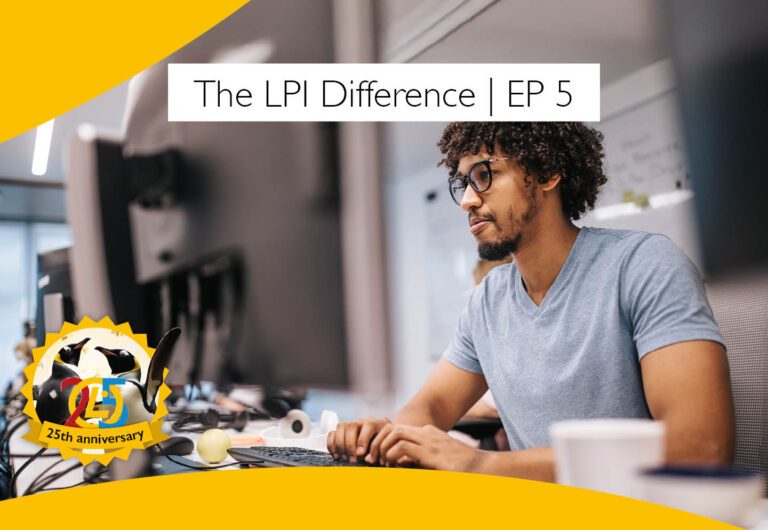LPIの違い その5:業界を支える取り組み

Linux Professional Institute(LPI)――25周年を迎えた、自由でオープンなソフトウェアを支える唯一無二の組織
Linux Professional Institute(LPI)は、オープンソースと自由なソフトウェアを支援するユニークな組織として、25周年を迎えました。
多くの人がLPIに関心を持つきっかけは「プロフェッショナル認定試験」かもしれません。しかし、私たちの活動や価値観はそれだけにとどまりません。
オープンソースは、他の分野とは異なる価値観や行動様式を必要とする、特別な存在です。この記事は、LPIが掲げるミッション「オープンソースの利用促進と、それを扱う人々の支援」がどのように体現されているかを紹介するシリーズの一部です。
将来の人材育成を見据えたLPIの役割
LPIが他の団体と大きく異なる点は、「オープンソースコミュニティの将来に役立つ人材育成」に重点を置いていることです。その象徴が、LPIC-3認定です。LPIC-3は4つの分野に分かれており、いずれも希少性が高く、業界で深刻に人材が不足している分野を対象としています。
それぞれの認定の内容は、まさに現代のエンタープライズ・コンピューティングの入門とも言えるものです:
-
ミックス環境(Mixed Environments):CIFSやSambaなどのファイル共有プロトコルや、複数システムにまたがるツールの理解
-
セキュリティ(Security):システムやネットワークの堅牢化、ペネトレーションテスト(侵入テスト)、通信の暗号化など
-
仮想化とコンテナ(Virtualization and Containerization):XenやDockerなどの主要なオープンソースクラウドツール
-
高可用性とストレージクラスタ(High Availability and Storage Clusters):ロードバランシングやRAIDクラスタ管理など、システムの堅牢性を高める技術
これらの試験に合格できる人材はまだ多くありません。しかし、企業はこれらのスキルを持つ候補者を必要としており、認定があることで「習得すべきスキルの指標」となり、学習の動機づけにもつながります。
私たちは、今後数年でこれらの専門分野の需要が一気に高まると見ています。LPIは、そのとき企業とエンジニアの橋渡しをする準備を整えています。
GNU/Linux以外にも目を向けて:BSD認定
LPIでは、GNU/Linuxの代替としても知られるBSDの認定も開発しました。BSDは歴史的に重要であるだけでなく、現在も幅広い現場で活用されています。
初学者・非技術者へのアプローチ
プロフェッショナル向けだけではなく、初学者や非エンジニア層を対象とした入門レベルの認定資格にも力を入れています。最近では、Linuxに加えて、以下のような分野にも広げています:
-
オープンソースの基本知識
-
ウェブ開発
-
DevOps
-
セキュリティ
これらは、技術職でなくてもオープンソースの基本を理解したい人々に向けたものです。
たとえば、Web Development Essentials(ウェブ開発の基礎)を学ぶことで、非プログラマーでも他のプログラミングスキルへとステップアップできます。Security Essentials(セキュリティの基礎)を修了した人は、フィッシングなどの悪意ある攻撃に対して、はるかに強くなります。
なぜ、LPIは認定を提供し続けるのか
私たちがこれらの認定を提供する理由は明確です。業界、そしてオープンソースコミュニティ全体が、その恩恵を受けられるからです。これらのスキルは今、そしてこれから特に求められるものであり、雇用側にとっても「本当に仕事ができるかどうか」の判断材料となります。
一方で、努力してスキルを身につけた人々が、その成果を認定という形で証明できる場も必要です。
業界を可視化する:調査活動
LPIでは、オープンソース業界の雇用市場を把握するために定期的な調査も実施しています。その調査報告書は、雇用者、求職者、そして現職のエンジニアが「今、業界が求めていること」を理解する助けとなっています。
LPIが特別な理由
LPIが特別な存在であるのは、その創設者たちが「オープンソースがまだその価値を示し始めたばかりの頃」から深い信念を持って支援してきたからです。オープンソースのニーズに寄り添った組織設計と活動方針――それが、今日のLPIの原点です。
このシリーズの記事で紹介しているLPIの選択や取り組みは、すべてその信念から自然に導かれたものです。そして、これらの価値観こそが、これからのプロフェッショナル、そしてオープンソースコミュニティ全体の「成功に不可欠な土台」だと私たちは信じています。
